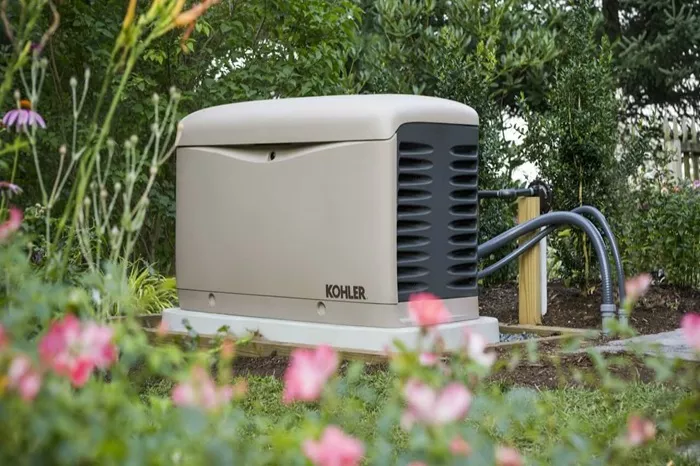Generators are essential for providing backup power during outages or supplying electricity while camping. Choosing the right generator depends on your needs—whether it’s for home backup, outdoor adventures, or both. This guide will help you understand the different types of generators, key features, and the best models available.
Types of Generators
Portable Generators
Portable generators are lightweight, easy to move, and ideal for camping, RVs, or short-term home backup. They usually run on gasoline, propane, or diesel and provide between 1,000 and 10,000 watts.
Pros
- Affordable
- Easy to transport
- Good for short-term power
Cons
- Noisy compared to inverter generators
- Requires manual starting
Inverter Generators
Inverter generators are more advanced, producing clean and stable power suitable for sensitive electronics like laptops and smartphones. They are quieter and more fuel-efficient than traditional portable generators.
Pros
- Quiet operation
- Fuel-efficient
- Safe for electronics
Cons
- More expensive
- Lower power output than conventional generators
Standby Generators
Standby generators are permanently installed and automatically turn on during a power outage. They are powered by natural gas or propane and provide high wattage for whole-house backup.
Pros
- Automatic operation
- High power output
- Reliable for long outages
Cons
- Expensive
- Requires professional installation
Solar Generators
Solar generators use solar panels to charge batteries, offering a clean and renewable power source. They are great for camping and emergencies but have limited power output.
Pros
- Eco-friendly
- Silent operation
- No fuel costs
Cons
- Limited power capacity
- Slow recharging in cloudy weather
Key Features to Consider
Power Output
Starting Watts: The initial surge power needed to start motors (e.g., refrigerators, AC units).
Running Watts: The continuous power required to keep appliances running.
Example Power Requirements
Refrigerator: 600-800 running watts (1,200-2,000 starting watts)
Laptop: 50-100 watts
LED Lights: 10-20 watts per bulb
Fuel Type
Gasoline: Easily available but has a short shelf life.
Propane: Longer shelf life, cleaner burning.
Diesel: More efficient for heavy-duty use but noisy.
Battery/Solar: No fuel needed but limited runtime.
Noise Level
Portable generators: 60-75 dB
Inverter generators: 50-60 dB (quieter)
Standby generators: 60-70 dB
Runtime
Small portable generators: 6-10 hours at 50% load
Large inverter generators: 10-20 hours
Standby generators: Unlimited (with fuel supply)
Portability
- Weight varies from 30 lbs (small inverter) to 300+ lbs (standby units).
- Look for wheels and handles if mobility is important.
Best Generators for Home & Camping
Best Overall: Honda EU2200i (Inverter Generator)
Power: 2,200 starting watts, 1,800 running watts
Fuel: Gasoline
Noise Level: 48-57 dB
Runtime: 8.1 hours at 25% load
Why It’s Great
- Super quiet and fuel-efficient
- Reliable for sensitive electronics
- Lightweight (47 lbs)
Best for Camping: Jackery Explorer 1000 (Solar Generator)
Power: 1,000Wh capacity, 1,000W output
Fuel: Solar/Battery
Noise Level: Silent
Runtime: Depends on usage
Why It’s Great
- No noise or fumes
- Portable and eco-friendly
- Charges via solar, wall outlet, or car
Best Budget Option: Champion 3800-Watt Dual Fuel
Power: 3,800 starting watts, 3,400 running watts
Fuel: Gasoline or Propane
Noise Level: 68 dB
Runtime: 10.5 hours (gasoline)
Why It’s Great
- Affordable dual-fuel option
- Good power for home backup
- Electric start feature
Best for Whole-House Backup: Generac 22kW Standby
Generator
Power: 22,000 watts
Fuel: Natural Gas/Propane
Noise Level: 67 dB
Runtime: Unlimited (with fuel supply)
Why It’s Great
- Automatic power during outages
- Powers entire home
- Reliable for long-term use
Safety Tips for Using Generators
Never run indoors : Generators produce carbon monoxide (CO), which is deadly.
Use heavy-duty extension cords : Ensure they are rated for outdoor use.
Regular maintenance : Change oil, check spark plugs, and use fuel stabilizer.
Ground the generator : Follow manufacturer instructions to prevent electric shocks.
Conclusion
Choosing the best generator depends on your needs—whether it’s for camping, home backup, or both. Inverter generators are great for quiet, efficient power, while standby generators offer whole-house backup. Solar generators are perfect for eco-friendly camping. Always consider power output, fuel type, noise level, and safety features before buying. By understanding these factors, you can pick the best generator for reliable power at home or in the great outdoors.

